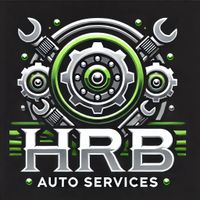
Coolant Change in Gillingham
Instantly compare coolant change deals from garages in Gillingham & book online
Instantly compare coolant change deals from garages in Gillingham & book online
How to book online

ENTER
your vehicle reg & post code.

COMPARE
instant prices for your MOT, service or repairs

BOOK
your preferred date & time in 1 step.

NO PAYMENT
taken - only when the work is complete*
*some mobile technicians will contact you prior to your appointment to take payment in advance.

HRB AUTO SERVICES
Mobile Mechanic
9 Kenilworth Drive, Gillingham, ME8 9DP
About Us
Mobile mechanic From routine maintenance to mot failures With a mind set to keeping you on the road I offer a mobile service to work around your needs With over 20 years experience in the motor trade from working on cars to light commercial vehicles Routine maintenance services Fleet maintenance 6 weekly inspections 2ltr transit wet belts Cambelts Diagnostic Mot failures All works undertaken Covering Medway Kent and surrounding areas
Coolant Change£60
4.98 (12 reviews)

Medway MOT Centre Ltd
Physical Garage
5 Cloverlay Business Park, Canterbury Lane, Rainham, ME8 8GL
About Us
We make it simple and fast with while you wait MOT's. With a friendly female receptionist, take a seat in our reception area, grab a free drink and leave the rest to us. Toilet facilities are available. If we do have to fail your car we always show you why. Not that we want your car to fail, any minor adjustments are carried out by our technicians FREE. We are not in the business of failing cars to get repair work!
Coolant Change£60
4.98 (15 reviews)
Reviews Summary
AI Generated
Customers consistently praise the garage’s friendly, professional team, highlighting quick turnarounds for MOTs and repairs, clear communication, fair pricing and accommodating extras like wifi, coffee and a pleasant waiting area. Only a rare scheduling hiccup was reported, but staff resolved it on the spot; overall the feedback is strongly positive.

Olistone Garage
Physical Garage
Unit 3, Bredgar Road, Gillingham, ME8 6PL

About Us
Reliable & Fast MOT Testing in kent Looking for a professional and trustworthy MOT testing centre in Kent We provide fast, reliable, and affordable MOT tests to ensure your vehicle meets all legal and safety requirements. With over 15 years of experience, we guarantee a smooth and hassle-free MOT process for cars, light vans, and small minibuses (Class 4 MOTs). Book Your MOT Now!
Coolant Change£60
4.96 (17 reviews)
Reviews Summary
AI Generated
Praise centres on friendly, approachable staff and fast, same‑day service, with many customers praising clear explanations and honest, helpful advice. Reviewers also highlight easy online or last‑minute booking, good value for money and professional workmanship, leading to lots of repeat custom and recommendations. There are virtually no recurring complaints — a few people mentioned tyres being needed during an MOT (presented as expected) but no consistent weaknesses emerge.
What is coolant?
Coolant is a specially-formulated chemical liquid, commonly known as antifreeze, that circulates through a car’s engine. It removes excess heat from a car’s engine by passing it through the car’s radiator. Furthermore, the solution contains inhibitors that protect the metal, plastic and rubber in the cooling system from corrosion. And, as the name antifreeze suggests, it also doesn’t freeze up in bitterly cold conditions, so it plays an important role in a car all year long.
Why is changing the coolant important?
You should book a coolant change frequently, at least every 2 years. Low coolant can cause overheating, which would have serious implications for other components on the car. Even though coolant can leak and evaporate over time, in many cars it often looks as though the coolant never needs changing because its level seems to stay the same. However, draining and flushing the coolant system, including the radiator, at least once a year is important. Flushing pushes out all the old coolant, debris from corrosion and scale. If left in the engine, it may become clogged up, potentially causing extensive damage.
How is a coolant change done?
Before a mechanic drains the cooling system, he might add coolant cleaner to the coolant and then start the engine, depending on what the manufacturer specifies. After the car has run for a while, he would turn it off and drain it. He would then add water to flush it and drain it again, twice, before finally putting in the fresh coolant.
What are the possible signs that a car needs a coolant change?
- When a car’s maintenance or engine temperature light illuminates on its dashboard.
- If the car’s engine starts running at a higher temperature than usual, signifying that the engine is overheating.
How long does a coolant change take?
- Approximately 1 hour.
How much does a coolant change cost?
- Up to £50.
How to be a better driver
Whether you’re driving in Gillingham or further afield, think about road user etiquette. Showing respect for other road users makes driving more pleasant for you and safer for everyone. For example, if you have to make a last minute change of lane, make your request to change clear to the driver who will need to let you in - and signal your thanks if they do. Be ready to abandon the change of lane if they won’t play ball - your safety (and that of other drivers and pedestrians) is more important than getting to your destination in the shortest time possible. When the position is reversed and a driver asks your permission to change lanes, allow them to as long as it is safe. If you get frustrated, avoid using your horn - it won’t improve matters and might make them considerably worse.